Since petroleum engineering was formally established as a degree program, the scope and content of curricula has been evolving to match technological advancements and soft skills requirements to meet the needs of the oil and gas industry. The cyclical nature of the industry has always presented a challenge to the enrollment and the viability of the degree. However, while having to tackle challenges relating to record-low enrollment over the past few years that is the direct result of the recent industry downturn, academic programs are also experiencing mounting pressure that is transforming the core identity of these programs. Much of that pressure can be directly linked to the heightened awareness around the impact of emissions on climate and the environment.
While technological advancements in clean energy is contributing to an accelerated transition in the energy sector that is reducing the share of the energy market need fulfilled by fossil fuels, all of the projections point to oil and gas continuing to be a critical part of the energy market until at least 2050. When considering development and utilization of capture technology, the share of oil and gas in the energy market could continue to remain significant well beyond 2050.
Meeting this demand requires maintaining high-quality petroleum engineering educational programs, hosted in thriving academic departments, educating a steady supply of a trained workforce with both undergraduate and advanced degrees. In addition, it requires diversifying the curriculum to continue to meet the ever-changing skillset needs of the energy industry and the requirements set by the Accreditation Board of Engineering and Technology (ABET). At the same time, the curriculum should continue to support the needs for a general education that targets a well-rounded graduate that is ready to be a critical thinker and an active participant in society, while also attempting to appeal to the new generations of college students and instilling in them the principles needed to secure the safe, sustainable, just, and responsible energy industry of the future.
Petroleum engineering faculty are at the forefront of these challenges, trying to balance multiple competing demands while keeping up research and educational programs that continue to be relevant. In this article, we bring to light the perspective of the experts, across the globe, that over the past 5 decades educated and prepared the workforce that supported the oil and gas industry. These perspectives were collected using a survey probing what faculty members are experiencing regarding the impact of the energy transition on recruiting students and on strategic directions in academic programs, the impact on their ability to fund their research and train graduate students, and what the faculty need to maintain a curriculum that is relevant to the future careers of their students.
Methodology
The online survey was envisioned and developed by the Society of Petroleum Engineers’ Education and Accreditation Committee (EAC) and administered by the SPE Research Group. The survey was sent to SPE members who identified their association to be with a university or their job/role to be faculty. It was also shared with the Petroleum Engineering Department Heads Association (PEDHA) for distribution within their academic units. The EAC is a standing committee of SPE that comprises 12 members, six from academia and six from industry. It is charged, among other things, with “implementing and monitoring the policies and programs concerning the petroleum engineering faculty and working with other engineering and scientific organizations to address the issues of quality and supply of engineering faculty and students.” With that charge, the committee developed the 2022 SPE Faculty Survey, which was administered during October and November 2022.
The survey consisted of statements assessing the perceptions about the energy transition and its impact on faculty and their academic units, in addition to statements relating to faculty perceptions of the future direction of petroleum engineering academic programs and curricula and what is needed to support the anticipated changes. Some of the statements asked the respondents to rank on a five-point scale the extent to which they agree with that statement, where the options were 5-strongly agree, 4-somewhat agree, 3-neutral, 2-somewhat disagree, or 1-strongly disagree. Other statements asked what the impact of the energy transition away from fossil fuels has been on some dimensions of faculty work, where the options were 5-greatly positive, 4-somewhat positive, 3-did not impact, 2-somewhat negative, or 1-greatly negative.
The number of faculty members that responded to the survey was 265. Eighteen percent were non-male respondents, and there was a wide distribution by age group and by region, with only 35% of the respondents based in the US. SPE 215086 provides more details on the distribution by region and age group.
Results and Discussions
Table 1 shows the mean and standard deviation values for the responses to the statements on the perceptions of the energy transition and its impact. Detailed frequencies for these responses can be found in SPE 215086.
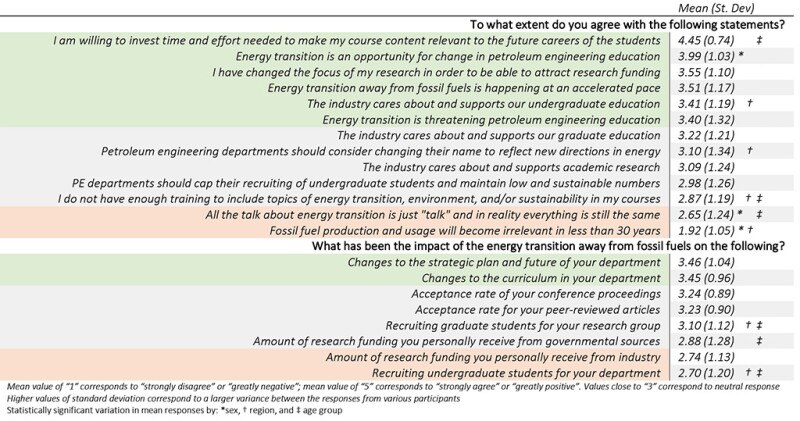
The main takeaways are:
- Faculty strongly support the inclusion of subsurface clean energy, sustainability, and data analytics in the petroleum engineering curriculum.
- Faculty in the US and Canada report lower support for changing the name of the degree compared to faculty in Europe, Latin America, Africa, and Northern Asia Pacific.
- The majority of faculty report having changed the focus of their research. Lack of funding for upstream petroleum engineering academic research could have a permanent impact on the identity of these academic programs and the skillsets of the workforce they train.
A high-level view of the responses reveals that 80% of the faculty see the energy transition in a positive light, as an opportunity for change for petroleum engineering (mean=3.99). Over 95% support covering the topics of environmental sustainability, clean energy, and data analytics in the undergraduate petroleum engineering curriculum, with the responses suggesting data analytics be covered as a mandatory course, clean energy as optional electives, and environmental sustainability be included to supplement existing courses (Fig. 1). More than 92% are willing to invest the time and effort needed to update curricula so it continues to be relevant to student careers (mean=4.45). However, not everyone feels prepared with the training and knowledge to do this adequately (mean=2.98).
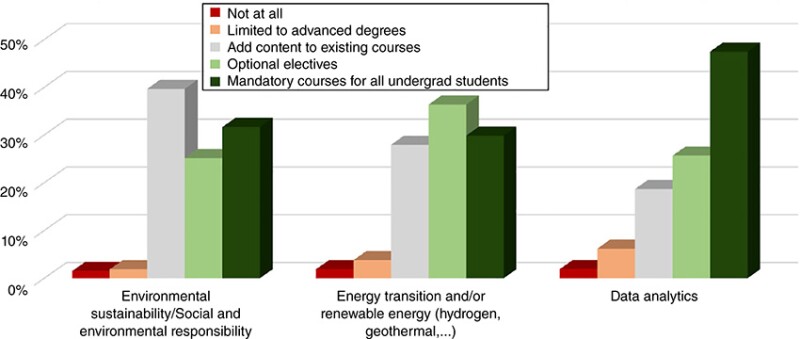
Committees at professional organizations such as SPE, associations such as PEDHA, energy companies, and academic department heads/directors can make this process easier and more efficient by preparing resources and designing events that can help faculty be better equipped for the needed change in the curriculum. The top resources faculty need are well-designed networking events between industry and academia, virtual Q&A sessions with industry professionals targeting academic audience, learning communities for petroleum engineering faculty, and course material such as lecture slides and content packages.
Opinions are split when it comes to the strategy of changing the name of the petroleum engineering degree (mean=3.10), where 40% believe that the name will not survive beyond 10 more years, while 33% believe that it will survive beyond 30 years (Fig. 2). It may be too soon to change the name of the degree, but this conversation needs to be revisited in about 5 years.
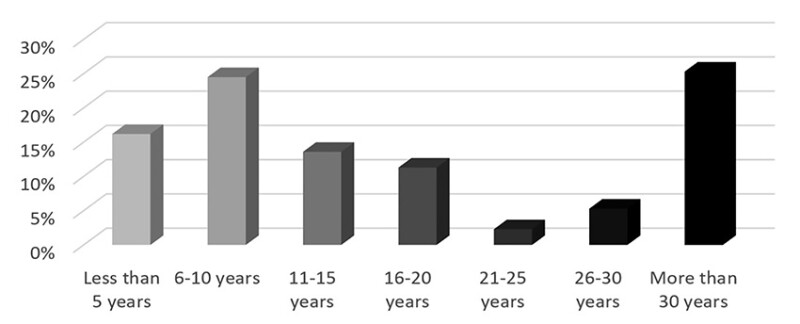
Many petroleum engineering faculty report having had to change the focus of their research to attract funding to support it (mean=3.55). This trend is alarming, showing that the energy transition has had a negative impact on research funding from industry (mean=2.74) as well as research funding from government (mean=2.88). Those results support observations that reveal the majority of petroleum engineering faculty abandoning core upstream petroleum engineering research due to the lack of available and reliable funding sources, and using their skills, resources, and experience to conduct research and train graduate and undergraduate students in non-fossil fuel subsurface energy production and storage (geothermal energy, hydrogen production and storage, and carbon dioxide capture, utilization, and storage).
While the negative impact of the energy transition and the most recent downturn in undergraduate recruiting (mean=2.70) may be starting to reverse given the slight uptick in first‑year enrollment in petroleum engineering the change in the research direction and the training of the oil and gas workforce has a more persistent, if not permanent, impact on the identity of petroleum engineering programs. While petroleum engineers are uniquely prepared to tackle the challenges of clean subsurface energy, the question is whether we can afford abandoning research and training in fossil fuel production. If we truly believe that oil and gas will continue to be part of the energy mix, then the industry should maintain support for academic research in upstream petroleum engineering so that it continues to train the workforce needed to sustained production from the increasingly challenging reservoirs.
We explored the variability of the responses by demographic groups, and while some of the variations do not reveal a “statistically significant” variation, we highlight in this article those variations that do (Table 2). Some of the highlights include:
- On the prospect of fossil fuel production becoming irrelevant in 30 years, there was stronger disagreement with this statement from male compared to non-male participants and from the US compared to Middle East and Northern Asia Pacific regions.
- On the energy transition being “just talk,” there was more disagreement with the statement reported by older participants in the age 55 to 74 years groups, compared to those in the age 35 to 44 years groups.
- On the impact on undergraduate recruiting, there was a more negative impact reported in the US compared to the Middle East and Africa regions.
- On whether petroleum departments should consider changing their name, there was much stronger support from the South, Central, and East Europe region, compared to the US, combined with a negative perception from those in Europe regarding industry support for undergraduate education, as opposed to a positive perception in the US.
- Participants in Northern Asia Pacific reported a stronger response to not being prepared with enough training to include emerging clean energy topics in the classroom, as compared to those in the US who were more neutral in that regard. Older participants in the age 55 to 74 years groups reported to be more prepared to tackle these topics compared to those in the age 35 to 54 years groups.
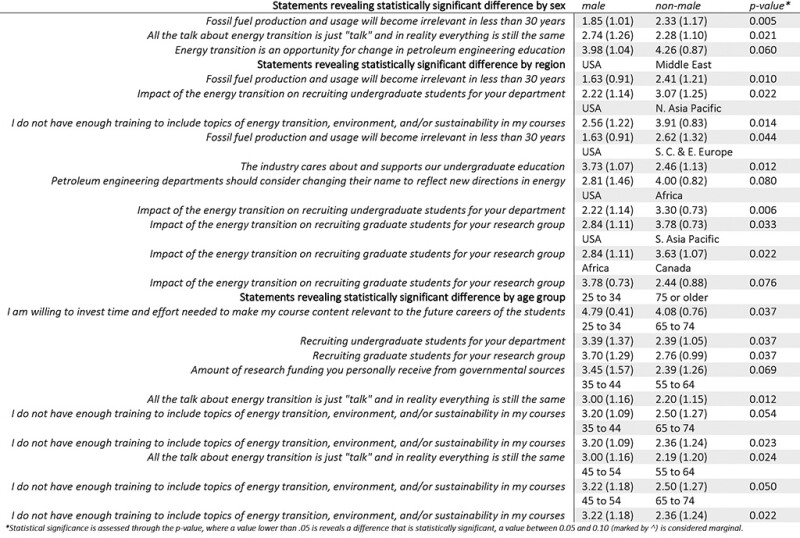
Acknowledgment
The survey results used in this paper were acquired by SPE’s Research Team at the request of the SPE Education and Accreditation Committee in 2022. The authors thank the SPE Research Team for granting permission to analyze and publish the survey results. We specifically thank the SPE staff members that made it possible to conduct this work, namely Mahesh Jayaraman and Alyson Polsky; we also thank members of the SPE Education and Accreditation Committee for their input, and the Petroleum Engineering Department Head Association for contributing feedback and participating in distributing the survey.

Mashhad Fahes is associate professor at the Mewbourne School of Petroleum and Geological Engineering at the University of Oklahoma. She holds a PhD degree in petroleum engineering from Imperial College London and a BSc degree in physics from the Lebanese University in Beirut. Her research spans experimental and analytical exploration of the fundamentals of flow in porous media including studying the factors contributing to enhanced oil recovery using low‑salinity waterflooding. Fahes served as chair of the SPE Education and Accreditation Committee (2020–2022). She serves as associate director for OU ELEVATE, an NSF ADVANCE research grant (2022–2027).
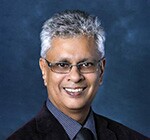
Raffie Hosein was former head of the Department of Chemical Engineering at the University of the West Indies (UWI) in Trinidad and Tobago. He is coordinator of the MSc Reservoir Engineering Program and professor of petroleum engineering at UWI. Previously he worked as a petroleum engineer with the Ministry of Energy and Energy Industries in Trinidad, as a senior associate professor in the Department of Petroleum Engineering at Texas A&M University in Qatar and as a consultant for Schlumberger NExT training School. He received his BSc, M.Phil, and PhD degrees in petroleum engineering from UWI. His current area of research is CCUS. He is a registered CEng MEI Chartered Petroleum Engineer with the Energy Institute of London and a Fellow with the Institute of Materials Minerals and Mining also of London.
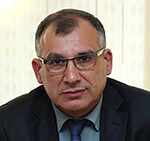
Gasham Zeynalov is associate professor at the Petroleum Engineering Department, Baku Higher Oil School. His research and education career are associated with reservoir characterization and petroleum geoscience. He was a member of the SPE Education and Accreditation Committee in 2019–2022 to assess and make recommendations on curriculum and education in petroleum engineering. He can be reached at gasham.zeynalov@bhos.edu.az.

Daria Karasalihović Sedlar is full professor at the University of Zagreb, faculty of Mining, Geology, and Petroleum Engineering. She holds a PhD degree in petroleum engineering. Her scientific research relates to energy economics, natural gas sector management, geothermal energy potential assessment, and CCUS policy and development strategies. She is a member of the Council for Energy Transition of the President of the Republic of Croatia and an International Gas Union member. As an SPE student faculty adviser and SPE Education and Accreditation Committee member, she was involved in numerous SPE projects.
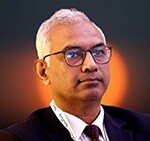
Manish Srivastava currently works as specialist in well integrity at ADNOC Offshore, Abu Dhabi. He has over 30 years of upstream experience in workover, well completions, well operations, and well integrity. He has worked in national oil companies in India, Kuwait, and Abu Dhabi. He serves in three SPE committees—WITS, Membership, and Education and Accreditation. He holds a bachelor’s degree in mechanical engineering and a master’s degree in finance.
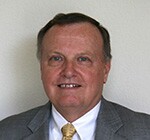
Gary Swindell is a consulting reservoir engineer with nearly 50 years of experience. Based in Dallas, Texas, his areas of focus are reserve estimation, property evaluation, and general reservoir studies. He holds a master’s degree in petroleum engineering. He can be reached at gswindell@yahoo.com.
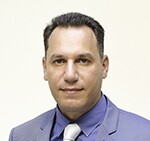
Nikolaos C. Kokkinos is associate professor at the International Hellenic University (IHU), Greece. He is the director of the Petroleum Institute at IHU, Kavala, Greece, and he is the program director of MSc in oil and gas technology at IHU. Kokkinos serves as the president of the SPE Kavala Section (Greece). He can be reached at nikokkinos@mwpc.gr.
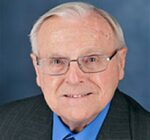
Glen Paul Willhite passed away on 15 December 2022. He was a former Ross H. Forney Distinguished Professor of Chemical and Petroleum Engineering at the University of Kansas and taught at the university for more than 50 years before retiring in 2019. He served on SPE’s Education and Accreditation Committee during the periods of 1982 to 1985 and 2020 to 2022. He held a BS in chemical engineering from Iowa State and a PhD in chemical engineering from Northwestern.
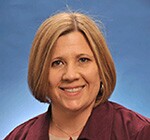
Dr. Lori Anderson Snyder is professor of psychology at the University of Oklahoma. She received her BA in human development and social relations from Earlham College and her MS and PhD degrees in industrial/organizational psychology from Colorado State University. Her research focuses on the application of psychology to the workplace, with a particular focus on the experiences of underrepresented and marginalized students and faculty in higher education. She currently serves as director of an NSF ADVANCE Institutional Transformation award and principal investigator of an NIH MIRA award.

